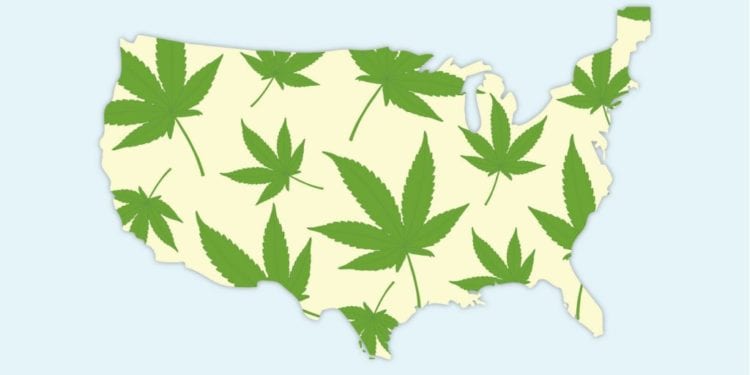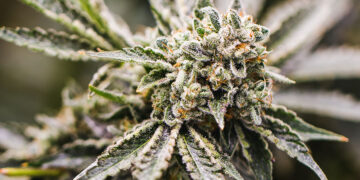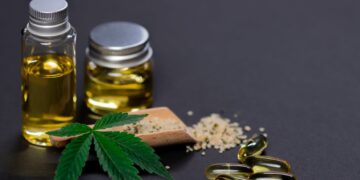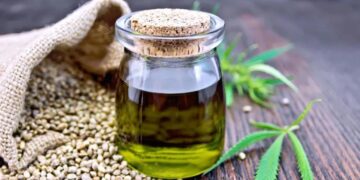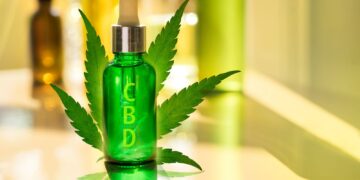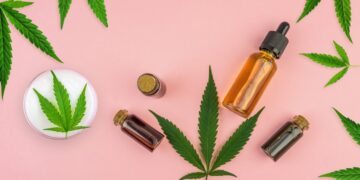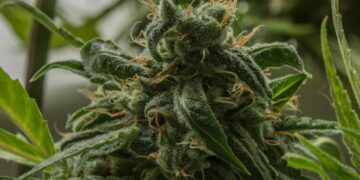Within the extremely contentious political environment in recent years, one segment has garnered increasing support: the push for “green” legalization. Even now, as the two major political parties remain deadlocked on several key issues, so-called botanicals and their derivative, cannabidiol (CBD), offer the possibility of bipartisanship.
Indeed, political sentiment surveys support this optimism in the face of unprecedented vitriol. Around a decade ago, a majority of Americans disapproved of recreational endorsement, indicative of the conservative climate at the time. But just recently, sentiment completely flipped, with a majority of the electorate supporting legalization.
Moreover, the upcoming political wrangling for the 2023 presidential race has offered a “safe space” to discuss botanicals frankly. During an interview in early 2019, Democratic presidential candidate Kamala Harris admitted to indulging the green stuff. “I did inhale. It was a long time ago.”
And it very well may have been. But the blunt (no pun intended) nature of the interview demonstrates how far we’ve progressed on the legalization front. Perhaps the most important point is that people no longer fear professional consequences for admitting their consumption.
Just decades ago, such an admission would have immediately derailed a political career, let alone a run for the presidency.
Therefore, the overriding sentiment is that most Americans – particularly the up-and-coming generation – make no controversy over legalization. Subsequent momentum at the ballots provides further evidence. Nevertheless, we still have a very practical question on our hands: are botanical products, particularly cannabidiol or CBD oil legal?
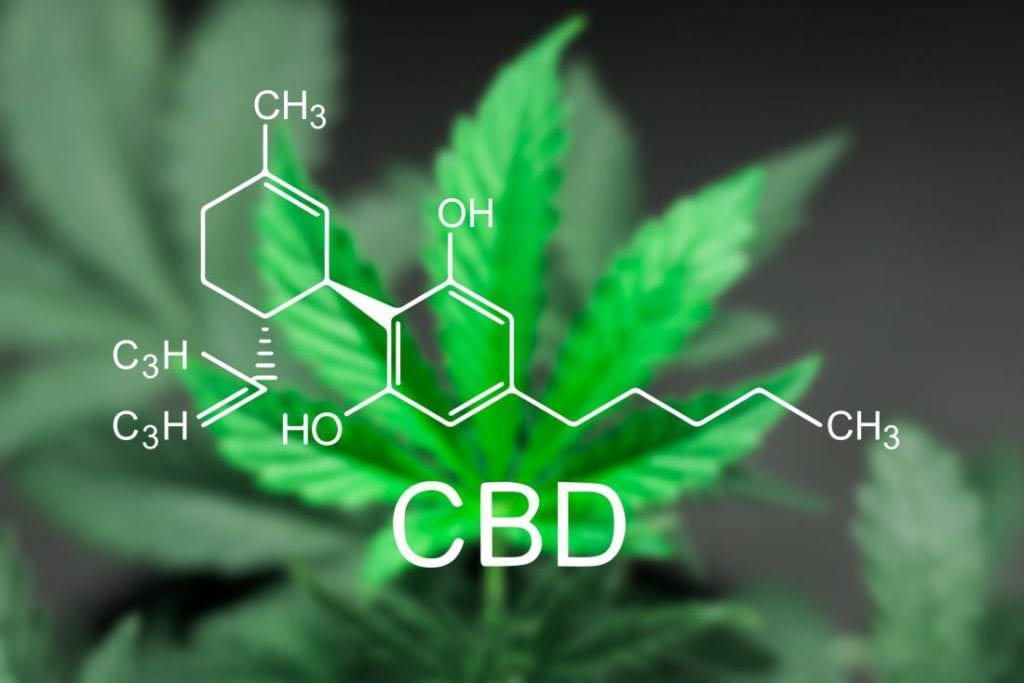
Defining Cannabidiol Oil or CBD Oil
As with anything involving the government, the answer is…it depends. Mostly, this matter comes down to where you live. Individual states have voted on legalization to varying degrees. For the botanical enthusiast, we have great news: the overwhelming majority of states allow some leeway for either medicinal or recreational use.
But complications arrive with federal oversight. Although states have their own mandates, ultimately, the federal government remains the top dog. While authorities have relaxed their position on the maligned plant, the feds still classify it as a Schedule I drug: the most stringent category applied to incredibly dangerous and addictive narcotics.
To better understand the legalities behind CBD oil, we must first define this product category. As the name suggests, cannabidiol represents one of the derivatives from the cannabis-Sativa plant. In fact, the plant contains 104 chemical compounds called cannabinoids. CBD is just one form of these compounds.
Later, agricultural specialists mix the CBD with a carrier oil. Usually, this arrives in the form of hemp seed or coconut. After an extensive process, the end result is the highly desired CBD oil.
Upon its introduction to the green marketplace, CBD oil quickly generated strong revenues for participating organizations. Strictly from a scientific view, CBD oil presented platform modularity. Particularly, this new product category found dramatic utility within botanical vaporizers. However, you can also consume this format more directly; for instance, oil sprays have generated significant buzz.
According to www.nugrepublic.com, the other critical advantage for cannabidiol is that they’re not psychoactive. This is a common misconception, even among botanical newbies. Out of the library of cannabinoids, one iteration clearly receives the most attention: tetrahydro cannabidiol or THC. It’s not hard to understand why.
When people discuss the highs associated with the maligned plant, they’re almost always talking about THC. And in earlier generations, the medical legalization initiative could not separate medicinal use with the psychoactive compound. However, new scientific advances have allowed professionals in the field to extract non-psychoactive variants.
Again, CBD oil does not impair mental or emotional functions, yet potentially offers several personal benefits. That’s why both mainstream and alternative health practitioners have strong hopes for cannabidiol.
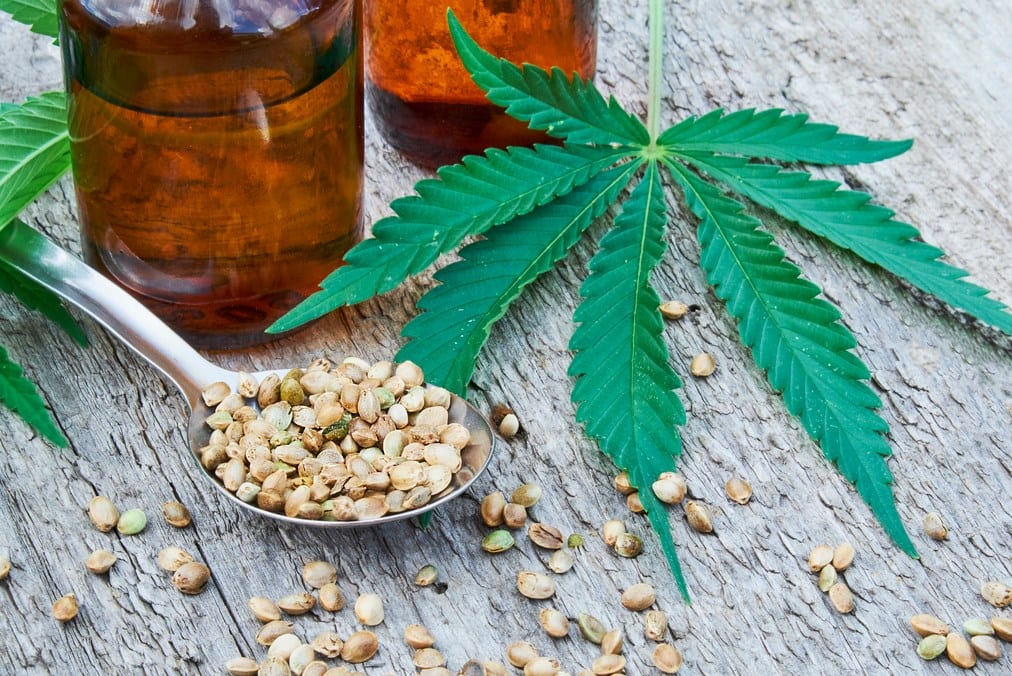
Navigating Tricky Legal Waters
Based on what we know and understand about this new botanical derivative, it seems we’re home free. From an agricultural standpoint, CBD oil does not contain any psychoactive compounds. Therefore, it is not addictive. Second, CBD has medicinal potential, and by logical deduction, we infer that it is not dangerous.
Armed with nothing but facts, we can determine that CBD does not justify the federal government’s standard for narcotics classification: our target compound is neither addictive nor dangerous. Furthermore, from an economic and practical point-of-view, the feds have little incentive to crack down on cannabidiol.
Indeed, the latter point has proven relevant. With so many geopolitical flashpoints and stressors, the federal government can’t afford to chase cannabidiol enthusiasts. They have neither the time, resources, or inclination to start a war that they likely can’t win.
That said, we’re talking about the government, which operates on bureaucratic mandates rather than on practicalities. As a result, the core plant from which CBD is derived remains on the Schedule I list. More as a function of misguided decision-making and legacy politics than anything substantive, cannabidiol receives unfair classification.
Unfortunately, the political will at this present juncture doesn’t exist to overturn it outright. While electoral momentum seemingly suggests that “de-scheduling” is on the horizon, botanical enthusiasts can’t ignore conservative strongholds.
Yes, their numbers are declining relative to those with progressive ideals. Nevertheless, in politics as in business, it pays to adopt a broad-appealing, middle-of-the-road approach. Leaning too far towards one end of the spectrum is a surefire way to lose votes, which is why Schedule I remains a thorny, tricky issue.
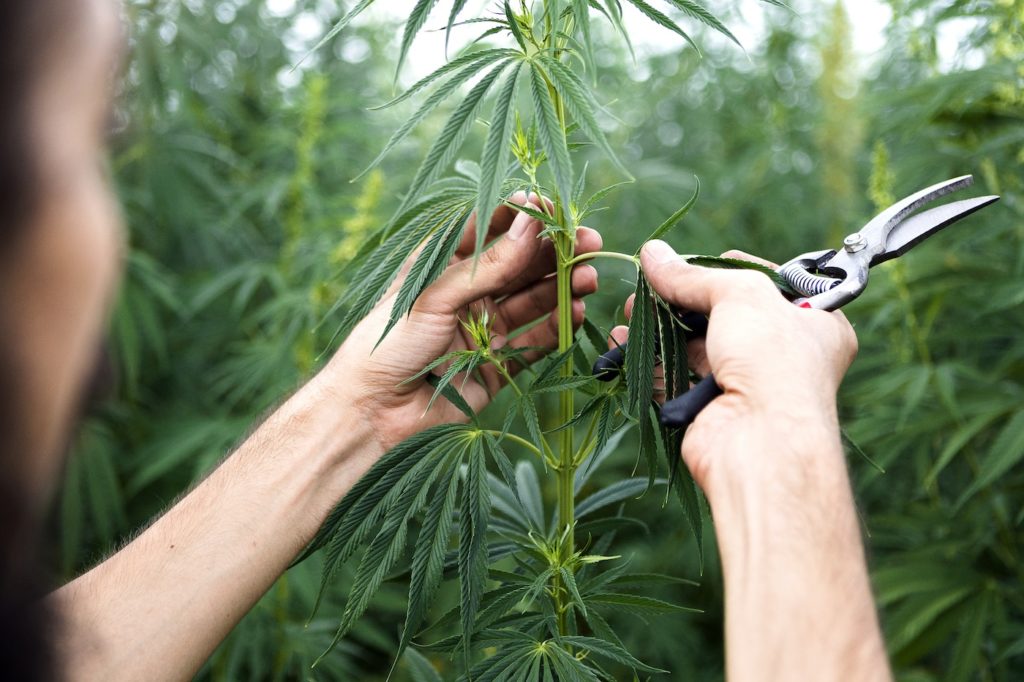
Thoughts About the Farm Bill
At this point, many of you are asking the same question…what about the Farm Bill?
Signed by President Trump in December 2018, the Agriculture Improvement Act of 2018, or colloquially the Farm Bill, represented a rare showing of bipartisanship in the current administration. At its core, this new legislation reauthorized several expenditures specified in the prior farm bill of 2014.
Naturally, most of this bill’s language would only excite policy wonks. We’re talking about extending benefits to those working directly for farm and nutrition policy. Also, Democrats got what they wanted, which was to remove SNAP (ie. food stamps) work requirements.
But the one measure within the Farm Bill that piqued almost everyone’s interest was its hemp provision. Botanical proponents aimed to change the definition of hemp as follows:
“the plant Cannabis sativa L. and any part of that plant, including the seeds thereof and all derivatives, extracts, cannabinoids, isomers, acids, salts, and salts of isomers, whether growing or not, with a delta-9 tetrahydrocannabinol [THC] concentration of not more than 0.3 percent on a dry weight basis.”
Furthermore, agricultural advocates pushed to revise the term “marihuana” as specified in the Controlled Substances Act to remove hemp, including extracts and derivatives. Primarily, such actions would serve to “defang” federal oversight and effectively make CBD oil legal in the U.S.
At least that’s how things should work in theory. When Trump signed the 2018 Farm Bill into law, he effectively de-scheduled several Sativa-derived products. Therefore, enthusiast consumables such as CBD oil – which again contain no THC – should find open retail markets.
But nothing works that easily in government.
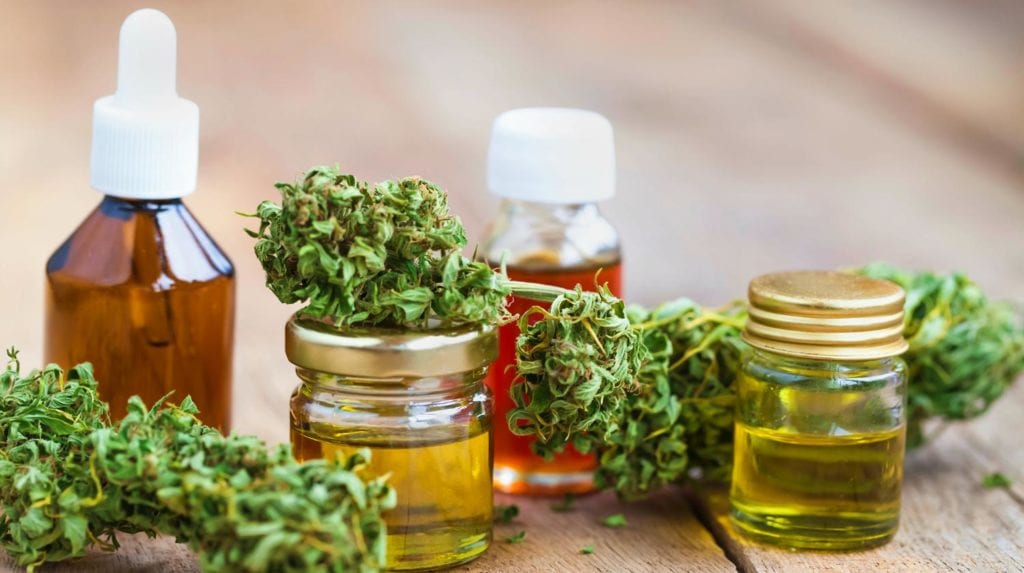
Conflicting Agencies and Interests
Undoubtedly, the Farm Bill represented a major victory. For the first time ever, advocates removed botanical derivatives from the Controlled Substances Act. Adding to the enthusiasm, Trump signed the bill despite his Republican party disappointing during that year’s midterm elections.
Really, it was amazing that generally combative politicians got together for a bipartisan effort involving key concessions on both sides. But the problem was that individual government agencies – largely as a matter of infrastructural limitations – could not join in. Through historical legacy and perhaps inter-divisional rivalries, products such as CBD oil remained in technical limbo.
Here are a few notable examples. The main watchdog agency, the Drug Enforcement Administration (DEA), classifies cannabidiol as an illegal substance. Further, the DEA has made no indication as to whether or not they will reclassify based on the Farm Bill.
Another example is the Food and Drug Administration (FDA), which still considers CBD oil as a drug. Therefore, cannabidiol runs into legality issues when companies incorporate it as an ingredient in food or health products. However, the FDA provided one exception: CBD manufacturers are free to do so with the agency’s approval.
Interestingly, the FDA has not backed down from this position. Shortly after the Farm Bill passed, the agency’s commissioner, Scott Gottlieb, reiterated cannabidiol’s controlled substance classification. Gottlieb stated:
“Selling unapproved products with unsubstantiated therapeutic claims is not only a violation of the law but also can put patients at risk, as these products have not been proven to be safe or effective.”
Out of the watchdog agencies, the FDA is perhaps the most aggressive. They have started to crack down on violators. However, the enforcement appears to be focused on breaches of the FDA’s consumables and medicinal guidelines. Those manufacturers and retailers who play by the rules have no reason for concern.
In fact, the powerful FDA has actually demonstrated a willingness to work with current laws and trends. For instance, the agency stated that three hemp-derived ingredients — hulled hemp seeds, hemp seed protein and hemp seed oil – are “safe as foods and won’t require additional approvals, as long as marketers do not make claims that they treat disease.”
Understandably, though, frustrations remain. Although public sentiment has clearly shifted in favor of full legalization, the federal government provides little to no clarity on recently approved laws and mandates. Simply put, the feds haven’t kept pace with the changing landscape.
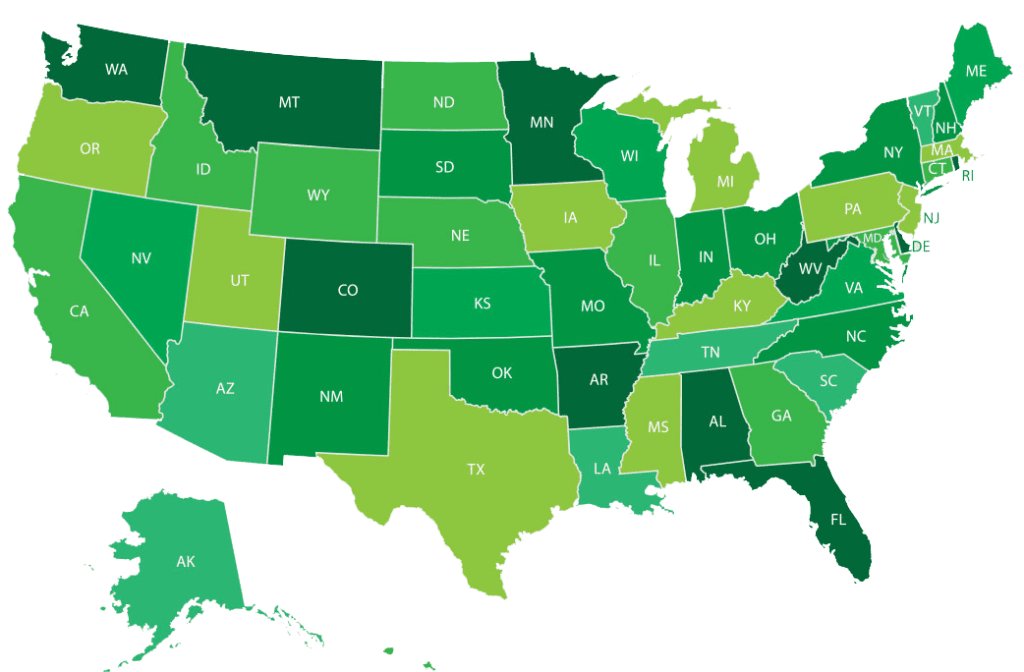
Spirit of the Law versus the Letter of the Law
Given the complexities behind “agricultural law,” should green enthusiasts worry about purchasing CBD oil products? After all, several federal agencies still list CBD as a controlled substance.
Surprisingly, the answer is much more straightforward than this legal mess would have you think. So long as you abide by your local laws, statutes, and regulations, you have nothing to fear regarding cannabidiol usage. Contrary to naysayers, the feds in all likelihood will not break down your door, ambush-style.
Part of the reason as we mentioned is that public sentiment has overwhelmingly shifted in favor of agricultural rights. While government bureaucracies carry a negative stereotype of inefficiencies and ineffectiveness, they’re not stupid. They recognize that many folks – including perhaps some of their peers – light up.
Going after a significant portion of the American populace simply makes little sense. It’s akin to writing drivers up for going five miles past the speed limit; in other words, you gotta let some stuff slide. Additionally, the majority of young Americans experiment. Tagging them with criminal charges will have an untold negative impact on tomorrow’s economy.
This segues into a second point regarding CBD oil legality: every case that the federal government prosecutes costs significant taxpayer money. According to Harvard University senior lecturer Jeffrey Miron, law-enforcement agencies would save nearly $9 billion if botanicals were fully legalized.
Since cases going to court require an extensive attorney and court fees, the total number would skyrocket. This is the central reason why the feds don’t pursue or turn a blind eye towards several cases: they simply lack resources. Logically, the government only considers the most surefire, economically viable cases for full-scale prosecution.
Is someone lighting up a joint? The feds just can’t deal with such low-level situations that will render meager rewards.
Finally, the political landscape is structured so that prosecution will incur significant consequences…for the prosecutor. As we just discussed, public opinion towards “agricultural goods” has remarkably turned favorable. Right there, prosecuting agents have an uphill battle to climb in the face of strong opposition.
But it’s also a poor look for the elites that run this nation. Since 62% of Americans favor legalization according to the Pew Research Center, this is not an electorate to trample on. Going too hard on this segment will result in a backlash, similar to what happened with digital-music downloads in the early 2000s.
Note also that despite President Trump’s hardline promise to restore “law and order,” he has kept quiet on agricultural rights. Actually, his actions speak far louder than his words. He, of course, signed the Farm Bill that de-scheduled hemp products. Additionally, he fired U.S. Attorney General Jeff Sessions, a notorious opponent of “agricultural crimes.”
Merely from a practical standpoint, enthusiasts can enjoy CBD oil (in legal jurisdictions) without fear of federal oversight.

So Finally, is CBD Legal?
Based on recent legislation such as the Farm Bill, and the near-complete unwillingness for federal authorities to vigorously attack cannabidiol users, CBD is structurally legal. While that’s not the most direct answer that enthusiasts seek, it is perhaps the most comprehensive.
Additionally, in specific areas where we have witnessed more aggressive oversight, they mostly occur in the botanical industry’s upstream component; that is, at the production and distribution level. Citing the FDA’s own guidelines, they’re zeroing in on CBD manufacturers that deliberately make false claims.
In other words, the customer is far too down the supply chain for federal agencies to chase. As a matter of economics and time management, they must fry the bigger fish.
Therefore, end-users who are concerned about cannabidiol legality should primarily focus on the state laws of their residence. As of December 2018, only three states have mandates that make any form of Sativa botanicals, including CBD oil, illegal: Idaho, Nebraska, and South Dakota. If you live in one of these states, you’re unlikely to receive cannabidiol products from a reputable retailer.
After the 2018 midterm elections, ten states have fully legalized “alternative” agriculture. They are:
- Alaska
- California
- Colorado
- Maine
- Massachusetts
- Michigan
- Nevada
- Oregon
- Vermont
- Washington
Better yet, this list keeps growing, with present trajectories suggesting more states will jump onboard. For instance, political analysts have regarded Michigan as a historical swing-state. But in the 2018 midterms, voters there took a decisive step towards progressive ideals, fully legalizing weed.
More importantly, legalization typically breeds economic success. Colorado provided an excellent case study, where recreational botanical sales quickly shot into the billions of dollars. Obviously, these are billions that the state previously did not record as tax revenue.
In many ways, preventing legalization of CBD and related products impose an opportunity cost. The slower a state or territory is in recognizing botanical potential, the less likely they are to reap benefits. That’s because in a volume-sensitive sector like “420,” being first-to-market levers tremendous advantages.
Moving forward over the next few election cycles, we should find dramatic integration of botanical freedoms. The costs to prosecute antiquated laws and customs have reached irrational levels. More importantly, the American people have spoken, loud and clear: they want their green pursuits treated no differently than any other adult liberty.

